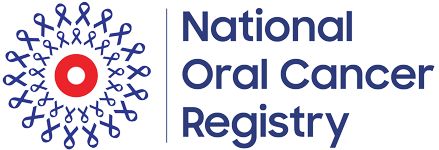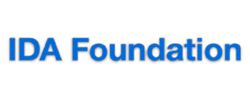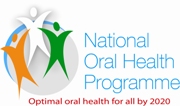
The National Oral Cancer Registry programme is a mechanism to collect and classify information on all oral cancer cases as well as precancerous lesions and conditions in order to produce statistics on the occurrence of cancer and to provide a framework for assessing and controlling the impact of oral cancer on the community. The population based cancer registries collect and process data relating to a defined geographical area while the hospital based cancer registries relate to data available within a specific hospital.
Read MoreHealth Professionals
Public

Public Event
{{eve.Name}}
{{eve.EventMonth}} {{eve.EventYear}}
{{eve.Description}}

Public Forum
Registry data helps persuade a large health care system to support a national plan to increase oral cancer screening.

Public Online
An online platform which motivates healthy living by promoting an oral health screening. The online resources provided here will help you find dental professionals for oral cancer screening and preventive services.
Media Center
Blog
Photo and Video Gallery
What Our Patients Say About Us
{{t.description}}
{{t.docname}}
B.D.SDid you Know?
2,500 persons die every day due to tobacco- related diseases in India.
Smoking accounts for 1 in 5 deaths among men and 1 in 20 deaths among women, accounting for an estimated 9,30,000 deaths in 2010.
Estimated number of people living with the disease: around 2.5 million
Every year, new cancer patients registered: Over 7 lakh Cancer-related deaths: 5,56,400
Deaths in the age group between 30-69 years
Total: 3, 95,400 (71% of all cancer related deaths)
- Men: 2,00,100
- Women: 1,95,300
Cancers of oral cavity and lungs in males account for over 50% of all cancer deaths in India.
The top five cancers in men and women account for 47.2% of all cancers; these cancers can be prevented, screened for and/or detected early and treated at an early stage. This could significantly reduce the death rate from these cancers.
| # | Men | Women |
|---|---|---|
| 1 | Lip, oral Cavity | Breast |
| 2 | Lung | Cervix |
| 3 | Stomach | Colorectum |
| 4 | Colorectum | Ovary |
| 5 | Pharynx | Lip, Oral Cavity |
Oral Cancer
Oral cancer is the most common cancer in India amongst men (11.28% of all cancers), fifth most frequently occurring cancer amongst women (4.3% of all cancers) and the third most frequently occurring cancer in India amongst both men and women.
Globocan 2012 data:
- New cases registered: 77,003
- Deaths: 52,067
Around 80% of oral cancers are directly attributable to tobacco use.
The mean age of oral cancer is 50 years.
The rates for oral cancer among males are significantly higher than females and these rates increase with age.
Survival rate (5-year)
- Patients with early stage oral cancer: 82%
- Patients with advanced stages: 27%
Did you know that oral cancer is abnormal (malignant) growth of body cells in any part of the oral cavity; oral cancer is sometimes termed head and neck cancer.
Did you know that early detection for oral cancer results in a survival outcome of 90%…However, delayed diagnosis means survival rates plummet to as little as 50%.
Did you know that risk factors for oral cancer are many like tobacco use alcohol use, sun exposure (lips), anyone who has already had some form of head and neck cancer, and human papilloma virus infection.
Did you know that one person in ten is unaware of the threat of mouth cancer.
Did you know that more than one in four are unaware smoking is leading cause of mouth cancer.
Did you know that symptoms of oral cancer may include red, white and/or a mixture of these colors in patches, a non-healing sore in the mouth or on the lips, bleeding, loose teeth, swallowing problems, new denture problems, lumps or bumps on the neck, and earaches.
Did you know that oral cancer is diagnosed by the patient's history and physical exam and definitively by a biopsy of oral tissue; occasionally, CT scans, MRI scans or PET scans may be used.
Did you know that the treatment of oral cancer is usually decided in conjunction with the patient's doctor.
Did you know that methods of treatment for oral cancer include surgery, radiation therapy, and/or chemotherapy.
Did you know that the side effects of oral cancer treatment may include pain, weakness, altered facial appearance, difficulty in swallowing or chewing food, dry mouth, tooth decay, sore throat, sore gums, bleeding, infections, denture problems, voice quality, thyroid problems, fatigue, hair loss, nausea, vomiting, and diarrhea.
Did you know that rehabilitation after oral cancer surgery consists of regaining strength, developing a healthy diet the patient can tolerate, and possibly dental implants or facial reconstruction surgery.
Did you know that after treatment and rehabilitation, checkups are needed to maintain health and make sure that the oral cancer does not recur.
Did you know that Oral cancer treatment can result in significant lifestyle changes; most patients are advised to discuss lifestyle problems with dental professionals to help patients get the care they may need.
Did you know that smokeless "spit" tobacco contains over 2,000 chemicals, many of which have been directly related to causing cancer.
Did you know that chewing tobacco increases the risk of oral cancer and the excess risk of cancers of the cheek and gum may reach nearly fifty-fold among long-term snuff users.
Did you know that smokeless tobacco use is responsible the development of a portion of oral leukoplakias in teenage and adult users. The degree to which the use of tobacco affects the oral had and soft tissues is depending on the site of action, type of smokeless product used, frequency and duration of use.
Did you know that longer use of smokeless tobacco results in a prevalence of leukoplakic lesions. Oral leukoplakias commonly found at the site of tobacco placement.
Did you know that a portion of these dysplastic lesions can further develop into carcinomas of either a verrcous or squamous cell variety.
Preventing Oral Cancer
Here’s how you can take an active role in preventing oral cancer or detecting it in its early stages:
- Always brush and floss your teeth regularly. An unhealthy mouth reduces your immune system and inhibits your body’s ability to fight off potential cancers.
- Do not smoke (or chew) any type of tobacco product. If you are a smoker, even with a casual habit, make the decision to stop
- Drink alcohol in moderation (one to two drinks per day) and never binge drink. The risk of developing oral cancer increases with the amount and length of time alcohol and tobacco products are used.
- Limit your exposure to the sun. We all know we need to use sunscreen, but do we remember to apply it to our lips? Always use UV-A/B-blocking sun protection on your lips when you are in the sun. Repeated exposure increases the risk of cancer on the lips, especially the lower lip. There are a lot of handy lipstick-size sunscreen tubes to pop in your purse for everyday use. Some even come with a colour tint and flavour to replace your regular lip gloss or moisturizer.
- Exercise regularly. An active lifestyle is known to boost the immune system and help ward off cancer.
- Choose cancer-fighting foods in your diet. Eat lots of beans, berries, cruciferous vegetables (like cabbage and broccoli), dark green leafy vegetables, flaxseed, garlic, grapes, green tea, soy and tomatoes for their role in cancer prevention.
- How you prepare those foods is also important in the prevention of cancer. Replace frying and grilling with baking, boiling or steaming. Use healthy spices like garlic, ginger and curry powder for added flavour.
- See your dentist regularly (at least every six months) and ask for an oral cancer screening to be done.
- Conduct a self exam at least once a month. It only takes a few minutes of your time, but could make a big difference in your life. Buy a handy mouth mirror for those hard-to-see areas. Be sure to check the back and sides of your tongue. If you see or feel anything suspicious ‘ lumps, bumps, tender areas, white, red or grey patches, see your dentist to have it checked.
- Oral cancer ranks in the top three of all cancers in India, which accounts for over 30% of all cancers reported in the country.
- Challenges focus on measurement of disease incidence and disease-specific risk behavior, predominantly, alcohol, and tobacco use. Future research should be aimed at improving quality of data for early detection and prevention of oral cancer.
- Non-communicable diseases including cancer are emerging as major public health problems in India.
- These diseases are lifestyle related, have a long latent period and needs specialised infrastructure and human resource for treatment.
- India still has a high burden of preventable communicable diseases and will offer competition for the resource allocation.
IDA Recommendation
Cancer registration is part of a modern health information system.
Cancer registry are specialists that capture a complete history, diagnosis, treatment, and health status for every oral cancer patient.
The data provide essential information to researchers, healthcare providers, and public health officials to better monitor and advance oral cancer treatments, conduct research, and improve oral cancer prevention and screening programs.

About IDA
Indian Dental Association (IDA) is the national voice for dentistry, aims “to promote the science and art of dentistry and the betterment of public oral health” through effective communication, guidance and thoughtful legislative efforts. We are dedicated to serving the interests of our members and promoting oral health.








[0]}})






